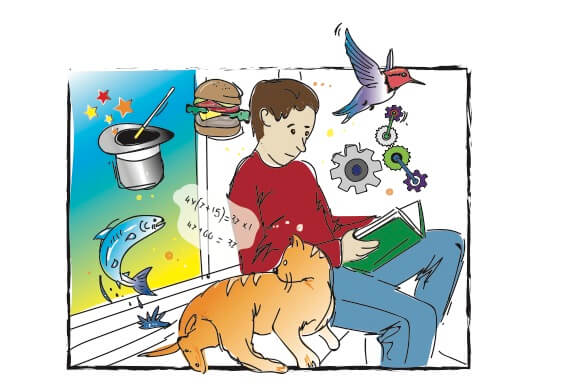ABC OF INQUIRY – KNOWLEDGE
ABC OF INQUIRY – KNOWLEDGE ‘We [need to] challenge the concept of static knowledge, replacing it with developing or evolving knowledges that tolerate an ongoing relationship to, and exploration of, what is known and what is not known.’ The Heart’s Narrative: Johnella Bird.
KNOWLEDGE: The story of the Known
Knowledge is a fascinating idea that could take many, many pages to explore. So we ask forgiveness ahead of time for the thin exploration that is required by limited time and space in this blog post. It has been the topic over the last couple of weeks of many rich, heated, provocative, delight-filled conversations by the BCW team and various friends and relatives.
So let’s have a quick look at Knowledge: Paré (1995) suggests that when it comes to knowledge three beliefs exist:
- Reality is knowable and can be tracked, recorded, made visible and used by persons. This is the observed world as object.
- We are bound by our perceptions, it is revealing of the subject(the knower) describing their reality, but often tells us not a lot about the external reality being described.
- This is the intersubjective space between 1 and 2 where human interpretation occurs and this interpretation is negotiated with others in community held in a net of social practices and cultural norms.
Constructivist/inquiry knowledges locates itself in this third category (interpretation)and constantly questions and interrogates “what is known and taken for granted; by whom is this known; what paradigms has the knowledge been constructed in; how does the language that knowledge is mediated through shape and construct realities; essential truths are constructs and what happens when we challenge our active acceptance and perpetuation of these truths; how are knowledges institutionalised, reified and legitimated?”
There are dominant cultural knowledges called discourses which disappear local and lost knowledges, that is ‘insider knowledges’. Hare-Mustin(1994)suggests discourses can be usefully understood as a “system of statements, practices, and institutional structures that share common values.” They create and perpetuate world views which make visible the relationships of society and power in the construction of knowledges and truth. This could lead us on to the creative power of language and thought to constitute knowledges and the very reality we experience however maybe we can leave that for another blog.
It might be worth, as an exercise, to trace back when and how the idea of childhood, the autonomous self, deviance, normalcy, and romantic love came into being and what practices have them being accepted as holding knowledges and truths about people in society. Who might benefit from these knowledges going unopposed and how have they gained such traction in the wider society?
- As a teacher some other questions that could be played with in regard to the construction of classroom and subject knowledges might include:
- Am I making discussions open enough to seek descriptions of more than one reality?
- What languages are being used and privileged here, is it all from the teacher’s perspective or are students’ realities, interpretations and experiences being included and respected?
- Have I created a safe space in classroom discussions for lost or marginalised knowledges to come forward?
- Am I making visible my own biases, values and intentions for this classroom discussion, project etc.?What discourses are being reified and perpetuated in this discussion?
- Am I inviting myself and students to take up a stance of ‘not knowing’ to ignite curiosity, imagination and possibilities with regard to received and accepted knowleges?
Paré, D. A.(1995)Of families and other cultures: The shifting paradigm of family therapy. Family Process, 34, 1-19
Hare-Mustin, R.(1994)Discourses in the mirrored room: A postmodern analysis of therapy. Family Process, 33, 19-35.
*BCW will now use‘They,their — themself’ as a singular, gender-neutral pronoun in all subsequent material generated on our website.
All Rights Reserved © 2018 Beconwiz All ideas and illustrations are the property of BeConWiz.

BeConWiz Ideas and Thoughts by Carla Holmes, Mary-Denese Holmes, Pearl Holmesis licensed under a Creative Commons Attribution-NonCommercial-NoDerivatives 4.0 International License.
Based on a work at https://beconwiz.com.
Permissions beyond the scope of this license may be available at https://beconwiz.com.
